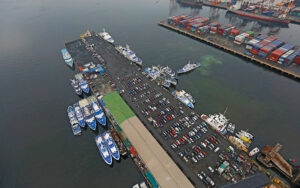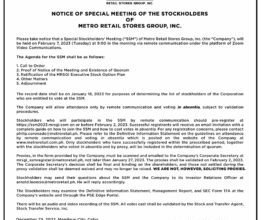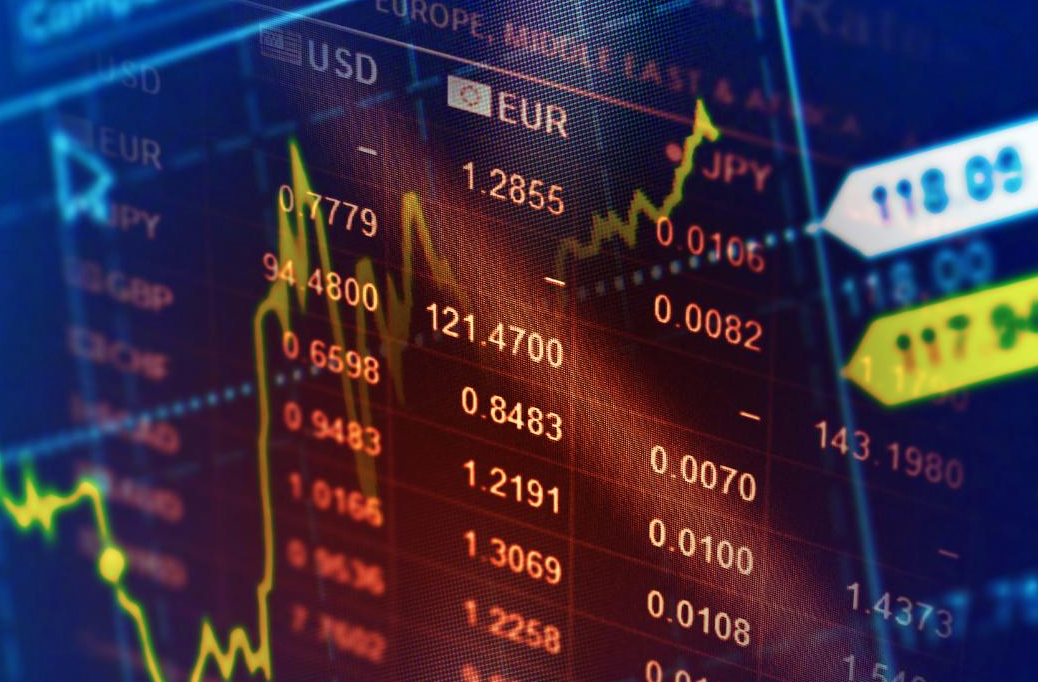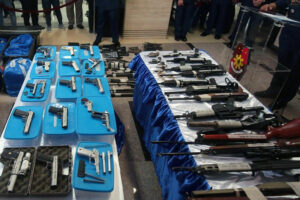Philippines urged to monitor external threats amid blue economy push

By Kyle Aristophere T. Atienza, Reporter
THE PHILIPPINE government should keep a close eye on potentially destabilizing external forces as it opens up the shipping industry to full foreign ownership and promotes investments in its ocean-based sectors, analysts said.
Jovito Jose P. Katigbak, a lecturer at De La Salle – College of Saint Benilde’s School of Diplomacy and Governance, said the government should update its list of strategic industries to include the maritime industry, which he noted is highly vulnerable to external threats.
He said the Philippines has yet to adopt a policy or pass a law that would underline and address “security threats and risks” in the blue economy.
However, Mr. Katigbak noted that China-based companies are facing greater scrutiny in other countries as some of them have been linked to the Chinese government, which has ramped up its data-gathering activities overseas in pursuit of its strategic ambitions.
“The negative performance of Chinese companies in other countries as well as their link to the Chinese Communist Party raises apprehensions from other governments, including the Philippines,” Mr. Katigbak said.
“The Philippine government should therefore practice due diligence in screening foreign investments and in regularly monitoring the activities of foreign players in several economic sectors, especially those considered strategic industries,” he added, noting that private maritime activities may be leveraged for strategic advances.
Blue economy tourism is among those highly vulnerable to security threats as foreign nationals may pose as tourists and gather sensitive information, Mr. Katigbak said.
The Philippines has long considered itself a maritime nation, with 25.89 million tons of goods — equivalent to 99.9% of domestic trade — being transported via water in 2019.
President Ferdinand R. Marcos, Jr. has vowed to put focus on the country’s maritime industry and the blue economy at large — a move that has been supported by many as the country confronts increasing security threats at sea, including China’s aggression. The administration has included a blue economy bill and a proposed maritime zones law in its legislative agenda.
In its development plan for 2023 to 2028, the Philippine government said it would unlock “more opportunities in the blue economy to leverage and optimize the country’s vast coastal and marine resources and maritime domain.”
Terry L. Ridon, a public investment analyst and convenor of InfraWatch PH, said key sectors in the maritime industry could be a launchpad for the geopolitical ambitions of foreign aggressors such as China.
“The opening up of new economic sectors to broader foreign investment is, to a certain extent, also its curse, as adversarial states may use the new liberalization law as a platform to influence, interfere or implement its geopolitical agenda in the country,” he said in an e-mail.
Last year Congress passed a law that amended the country’s 85-year-old Public Service Act, allowing full foreign ownership in domestic shipping, telecommunications, railways, subways, airlines, expressways, tollways, and airports. Under the law, public utilities such as seaports, public utility vehicles, electricity transmission and distribution, water and wastewater pipeline distribution systems including sewerage, petroleum and petroleum products, and pipeline transmission systems, are still subjected to the 40% foreign equity limit.
Mr. Ridon fears that “firms, particularly state-owned and controlled firms, from adversarial states” may install “infrastructure and equipment in their facilities, which may covertly contribute to an adversarial nation’s geopolitical objectives and ambitions.
“Even areas which are still deemed public utilities are not safe from being a platform of an adversarial nation’s influence or interference operations in the country,” he said.
Mr. Ridon said the President should consult the national security cluster whether it is advisable to require security clearances for foreigners seeking to serve as executives or investors in sectors deemed “critical, sensitive or vulnerable.”
“However, these concerns should not prevent the nation from developing its blue economy, and the government should invite both foreign and domestic investments to develop our shipbuilding and ship repair and maintenance industries.”
Joshua Bernard B. Espeña, a resident fellow at International Development & Security Cooperation, said the Philippine government should consider China’s gray zone tactics in its blue economy push as these pose threats to the operations of fishing and merchant fleets.
“For instance, water cannon attacks and dangerous maneuvers may result in damage to vessels and wastage of fuel and food needed to take the journey.”
He urged the government to give the Defense department, particularly the Philippine Navy, a bigger role in the protection of the West Philippine Sea, which refers to areas in the South China Sea that fall within the Philippines’ 200-nautical mile exclusive economic zone (EEZ).
“We must remember that the Chinese Coast Guard and Maritime Militia are controlled by the People’s Liberation Army-Navy and supervised by the Chinese Military Commission, which is headed by President Xi Jinping,” he said.
About 324,312 metric tons of aquatic products were procured from the West Philippine Sea in 2020, accounting for 7% of the country’s total fisheries production that year, according to the Bureau of Fisheries and Aquatic Resources.
The Recto Bank, which is within the Philippine EEZ in the South China Sea, reportedly holds up to 5.4 billion barrels of oil and 55.1 trillion cubic feet of natural gas. It “holds unexplored hydrocarbon stores,” according to the United States Energy Information Administration.




